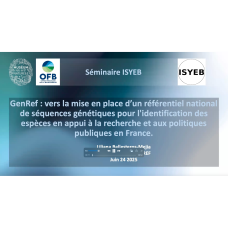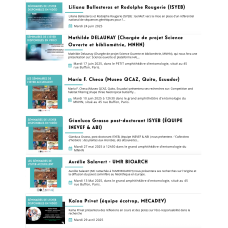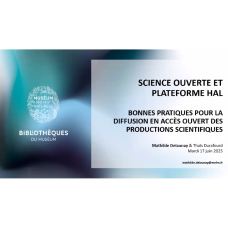Bernardo Ferreira Dos Santos de l’ISYEB

bandeau ISYEB

bandeau ISYEB
Bernardo Ferreira Dos Santos, Maître de conférences au MNHN et qui a rejoint l’Institut de Systématique, Evolution, Biodiversité en 2020, nous présentera ses travaux de recherche.
One of the most staggering adaptations associated with parasitism is the use of endogenous viruses by parasitoid wasps. These viral symbionts are inoculated by the female wasp along with its egg and help destroy the host’s immune response. More surprisingly, the sequences encoding these viral elements are incorporated into the wasp’s genome, from which they are excised and packaged into the virions or virus-like particles that act upon the wasp’s host. Until recently, our poor understanding of ichneumonid genomes prevented the investigation of the mechanistic and evolutionary aspects of this wasp-virus interaction. In this talk, we will discuss how recent advances in whole genome sequencing are allowing the mapping of endogenous viral elements found in wasps of the family Ichneumonidae, and what insights have been emerging on the genomic architecture of this interaction and the evolutionary pathways that have led to viral domestication across various lineages. These advances have been accomplished both through complete assemblies with long scaffold sizes and by low coverage genome sequencing. I will show how an in-depth comparison of two closely related genomes and a broad scale examination of multiple taxa along the family both have the potential to increase our understanding of wasp-viral symbiosis at different levels.



